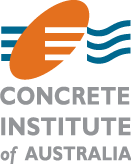Applications to participate in a university project focused on performance evaluation of eco-friendly concrete produced with granulated lead smelter slag are now open.
Offered by the University of South Australia, the full-time project at PhD level is aimed at correcting the lack of research available on lead smelter slag (LSS), and its reuse in concrete to avoid landfill.
The production of 1t of lead may discharge 700 kg of slag, but only 15% is recycled and as such, the accumulation of LSS in landfill sites can pose potential environmental hazards due to its toxic heavy metals, such as lead and zinc, according to UniSA.
In recent years, several studies have proposed a green engineering solution to reuse LSS by incorporating it as a replacement for cement in eco-friendly concrete products. This method not only maximises the recycling of LSS due to the consumption of concrete and the excellent compatibility of concrete with various wastes, but also conserves cement clinker and natural aggregates, contributing to Australia’s carbon neutralisation policy.
But, compared to fly ash and other types of slag, there is a lack of research on LSS and the mechanical and durability properties of the developed concrete/mortar, hence the project. The objectives will be to characterise the mineralogy and reactivity of LSS from Port Pirie and further evaluate its feasibility as a replacement for cement in ecofriendly concrete products; perform leaching test for heavy metals; optimise the mix design of the developed concrete based on physical and mechanical performance; conduct drying shrinkage and other durability tests to identify the role of LSS in concrete regarding long-term behaviour; and check if the material can mitigate against alkali silica reaction.
The project attracts a living allowance scholarship of $32,500 per annum and First Nations applicants will be eligible for $46,653 per annum. A fee-offset or waiver for the standard term of the program is also included. An additional top-up scholarship of $16,210 per annum will be offered to the preferred applicant.
For more information visit the project at UniSA. Applications close 24 November 2023.


